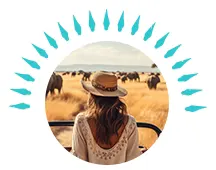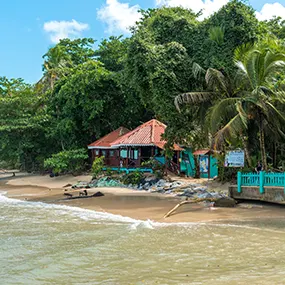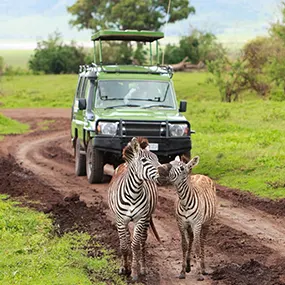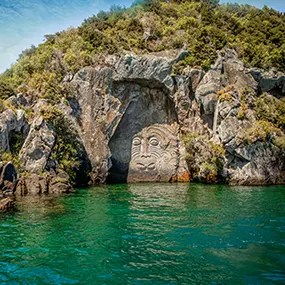

Global travel experiences
Exploring the world through authentic travel and tourism experiences
Destination inspiration guide
Sustainable tourism practices across diverse ecosystems
Unforgettable journeys: the magic of sightseeing bus tours

Sightseeing bus tours are a convenient and comfortable way to explore a city or region, especially for travelers who want to make the most of their time. These tours insured with Tootbus usually take you through the city’s main sights and attractions, allowing you to enjoy the sites without having to worry about navigation or transportation.
Many sightseeing buses feature open decks or large windows, offering uninterrupted views of major monuments, parks and cultural sites. Passengers often have access to an audio guide in several languages, offering pertinent commentary on the history and significance of the places visited.

Cultural immersion journeys
Digital transformation tools enhancing travel experiences
Accommodation diversity worldwide
Distinctive lodging options beyond traditional hotels

Converted historical properties preserving architectural heritage
The Parador de Granada in Spain occupies a 15th-century convent within the Alhambra complex, allowing guests to stay within a UNESCO World Heritage site. Original stone archways and monastery gardens have been preserved while rooms feature modern amenities, creating a living museum experience where visitors absorb Moorish architectural influences firsthand.

Treehouse accommodations integrating natural surroundings
Sweden’s Treehotel features architect-designed suspended cabins including the mirrored “Cube” reflecting forest landscapes and the UFO-shaped structure hanging among pine trees. Each unit incorporates sustainable building practices with composting toilets and hydroelectric power while providing panoramic views of the Lule River valley from elevated perspectives.

Underwater lodging with marine ecosystem views
The Muraka at Conrad Maldives Rangali Island features a two-level residence with the master bedroom submerged 16 feet below sea level. Floor-to-ceiling acrylic walls provide 180-degree views of coral gardens and passing marine life, while dedicated marine biologists offer educational sessions about the fragile reef ecosystem surrounding the structure.

Ice hotels showcasing ephemeral winter architecture
Quebec’s Hôtel de Glace reconstructs 40 themed suites annually using 500 tons of ice and 30,000 tons of snow, maintaining interior temperatures between -3°C and -5°C regardless of outside conditions. Thermal sleeping bags on ice beds with deer fur insulation keep guests comfortable while ice sculptors create unique artistic installations throughout public spaces that change with each winter season.

Desert glamping experiences in remote landscapes
Scarabeo Camp in Morocco’s Agafay Desert offers canvas lodges with Berber-inspired interiors positioned for optimal Atlas Mountain views. Solar-powered amenities include hot showers and ambient lighting, while activities range from camel treks to traditional tagine cooking demonstrations led by local guides who share knowledge about desert ecosystem adaptation and nomadic cultural traditions.

Floating accommodations on rivers and lakes
The 4 Rivers Floating Lodge in Cambodia’s Cardamom Mountains features overwater tented villas connected by wooden walkways above the Tatai River. Designed with minimal environmental impact, these structures allow guests to observe river otters and exotic birds from private decks while supporting conservation initiatives protecting one of Southeast Asia’s largest remaining rainforest watersheds.
Gastronomic journey
Culinary tourism experiences highlighting regional gastronomy
Barcelona’s Mercat de la Boqueria food tours introduce visitors to Catalan culinary traditions through guided tastings with local vendors. Participants sample regional specialties like jamón ibérico, fresh seafood paella, and artisanal cheeses while learning about Mediterranean ingredient sourcing and traditional preparation methods that have shaped the region’s distinctive flavor profiles.
Kyoto’s machiya cooking classes teach travelers traditional Japanese culinary techniques in restored wooden townhouses. Participants visit Nishiki Market to select seasonal ingredients before preparing authentic dishes like dashi, tempura, and wagashi sweets under the guidance of professional chefs who explain the cultural significance behind each preparation method and presentation style.

Transportation innovation trends
Specialized travel experiences for distinct interests
Wildlife photography safaris in Tanzania’s Serengeti National Park provide specialized vehicles with camera mounts and removable roof panels for optimal shooting angles. Expert guides trained in animal behavior anticipate movement patterns of elusive species like leopards and cheetahs, positioning photographers for golden hour lighting while explaining ecosystem relationships affecting wildlife distribution.






